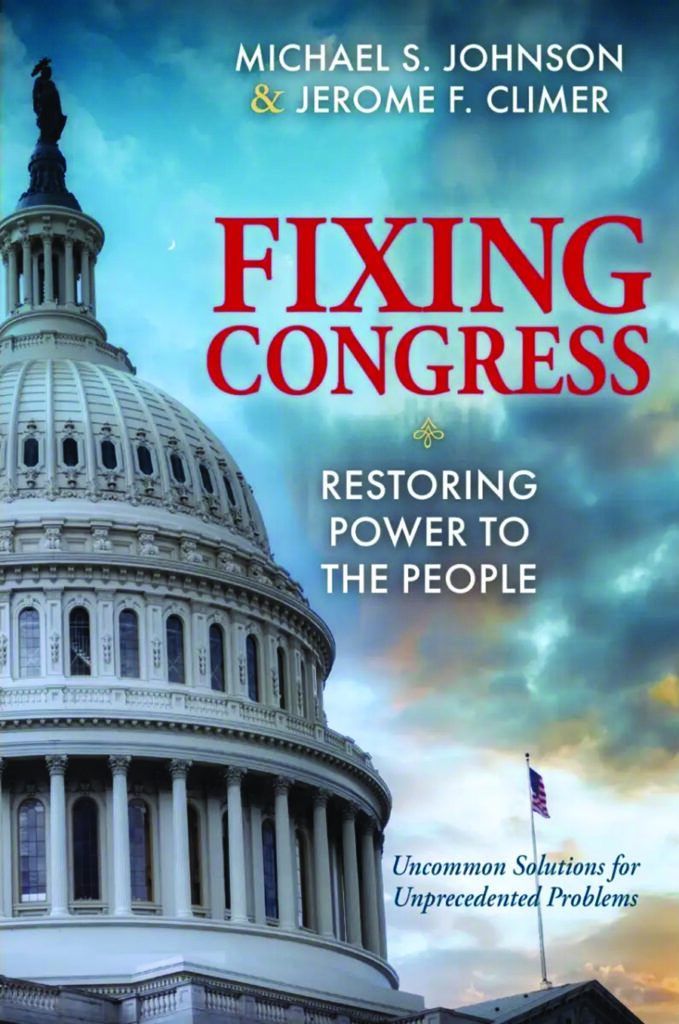
The 118th Congress is drawing bipartisan jeers for its lack of legislative accomplishments.
House Democrats, in the minority by a slim margin, routinely pan Republicans for their inability to pass routine government spending bills, aid to Ukraine in its defensive war against Russia, and a range of other proposals. That’s not particularly surprising since it’s the minority party’s job to complain about the majority’s performance and argue how it would do better if voters gave it power.
But Democrats are frequently joined in outrage by high-profile GOP colleagues who, for starkly different reasons, are upset with Republican leadership.

“Our Republican majority is a complete failure,” Rep. Marjorie Taylor Greene (R-GA) wrote on X on March 21, blasting House Republican leaders for not confronting aggressively enough profligate federal spending and illegal immigration.
It’s all led to the messiest Congress in recent memory. The national legislature’s shambolic performance, of course, didn’t happen overnight. Decadeslong roots to the problems span congressional majorities. At the end of this Congress, in early January 2025, Democrats and Republicans will have held power in the Senate nearly equally for the prior 44 years. Across the Capitol in the House, starting with the 1980 elections, the parties will have held the majority for exactly 22 years each, with the majority changing five times from the 1994 elections on — three in Republicans’ favor, twice for the Democrats, and with the 2024 fight for House control now effectively an electoral jump ball that could go either way.

A pair of Capitol Hill veterans, Michael S. Johnson and Jerome F. Climer, offer a penetrating diagnosis of what’s gone wrong, and how to fix it, in their new book Fixing Congress: Restoring Power to the People (Morgan James Publishing). Johnson worked on President Gerald Ford’s White House staff and was press secretary and eventually chief of staff to House Minority Leader Bob Michel, an Illinois Republican, followed by a Washington, D.C., private sector career. Climer was a congressional staff member for 20 years before creating the Congressional Institute, where he served as president for two decades before retiring in 2007.
Their book is particularly timely six months after the ouster of former House Speaker Kevin McCarthy — with “former” being the key word in describing the 17-year House Republican from California. McCarthy was pushed out after nine months in the chamber’s top job, second in line of presidential succession behind the vice president, by a renegade group of House Republicans dissatisfied with his leadership style, along with a united House Democratic Caucus that refused to throw McCarthy a political lifeline.
However, McCarthy’s successor, House Speaker Mike Johnson (R-LA) — no relation to the similarly named Fixing Congress co-author — has not had much better luck herding legislative cats. Greene, the firebrand, north Georgia Republican first elected in 2020, has already threatened to try and oust Johnson as speaker if he moves ahead with Ukraine aid, which has strong support in President Joe Biden’s White House and the Democratic-majority Senate.
The scourge of gerrymandering
The authors point to gerrymandering, effectively rigging House districts to favor one party or another, as a key part of the Capitol Hill breakdown. They’re hardly the first to cite this problem, but their long experiences working in Congress provided a front-row seat to its politically toxic effects. Heading into November, out of 435 House districts, only 18 in the 2020 election would have voted for Biden over former President Donald Trump but are held by Republican lawmakers, while a scant five Democrats hold House districts where Trump would have won.
“Gerrymandering is one of three legislative inhibitors that evoke some of the most blatant hypocrisy from both parties. The other two are raising money for campaigns and the Senate filibuster,” Johnson and Climer wrote.
“As the country’s population tripled over the past one hundred years, census data became more detailed and research about voter behavior more precise,” the co-authors added. “As a result, politicians and political parties became more adept at drawing congressional district boundaries to favor one political party and point of view. The practice has become so sophisticated that cities, towns, even neighborhoods and city blocks are carved up and separated into different districts, making it easier for a representative to represent a compatible constituency without having to navigate contrary points of view among the general population.”
Republicans have generally been more aggressive at gerrymandering, carving up seats for their party member with great efficiency in Florida, North Carolina, Texas, and elsewhere. But Democrats have hardly lived up to their own rhetorical standards on gerrymandering. They could have tried, but didn’t, to enact stand-alone legislation mandating independent commissions to draw House seats when they held unified control of government in the first two years of President Barack Obama’s tenure (2009-11) and Biden’s (2021-23).
Suggested reforms
Curtailing gerrymandering is a top proposed reform by the authors, but that’s hardly the only one. They call for imposing term limits on lawmakers, an idea polls consistently show has broad support from the voting public.
Johnson and Climer also suggest voters choose the speaker of the House, rather than lawmakers. It’s an intriguing idea because, constitutionally, the speaker need not come from among sitting lawmakers.
CLICK HERE TO READ MORE FROM THE WASHINGTON EXAMINER
Like other congressional reform proposals pitched in their book, that’s one to take at least a look at. Along with changes to the federal budget process, plus internal Capitol Hill reforms such as streamlining and delineating jurisdiction between committees and subcommittees.
These ideas will have their supporters and detractors. But considering the sad state of Congress now, they’re at least worth debate and consideration. The proposals come in good faith in an important book that should be required reading on Capitol Hill.





